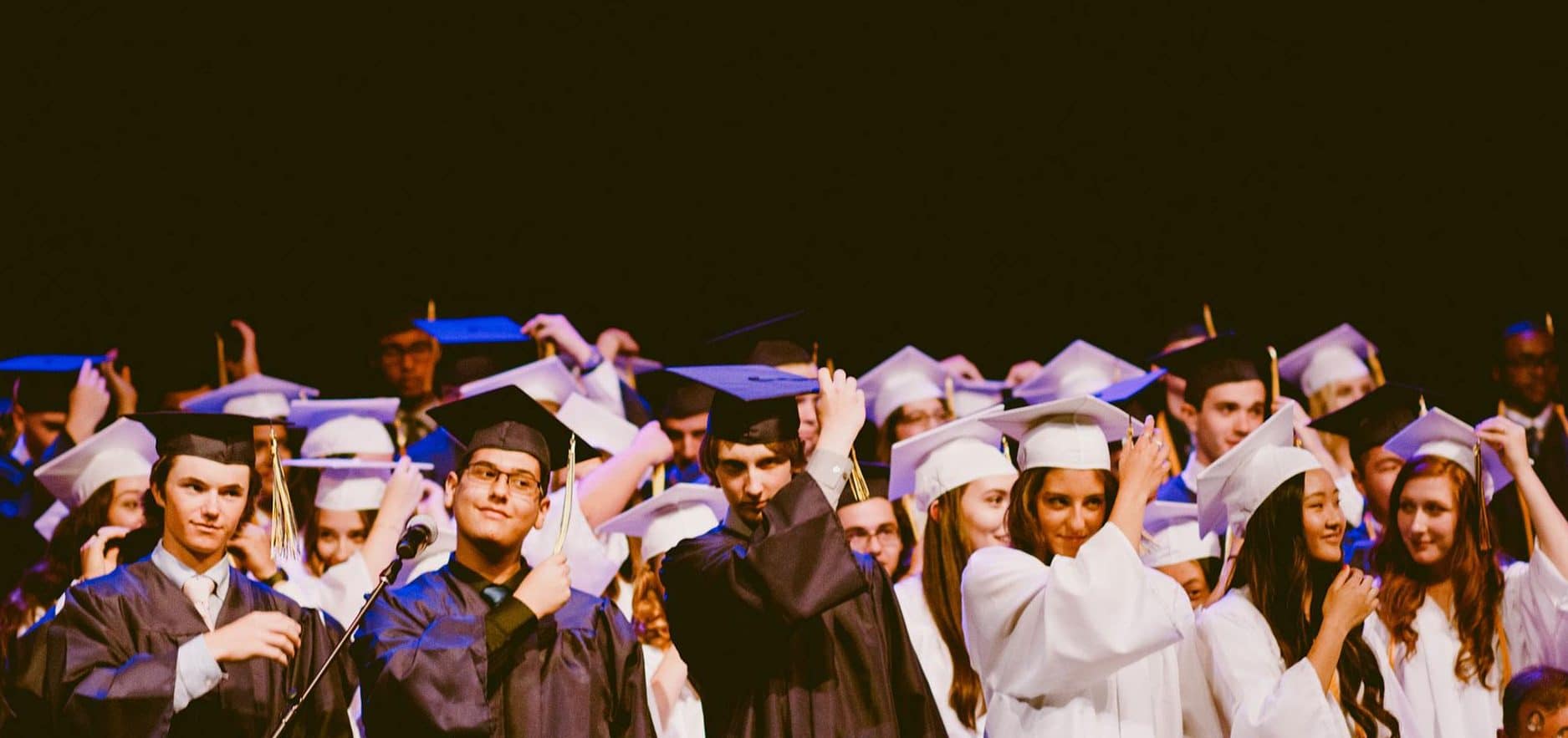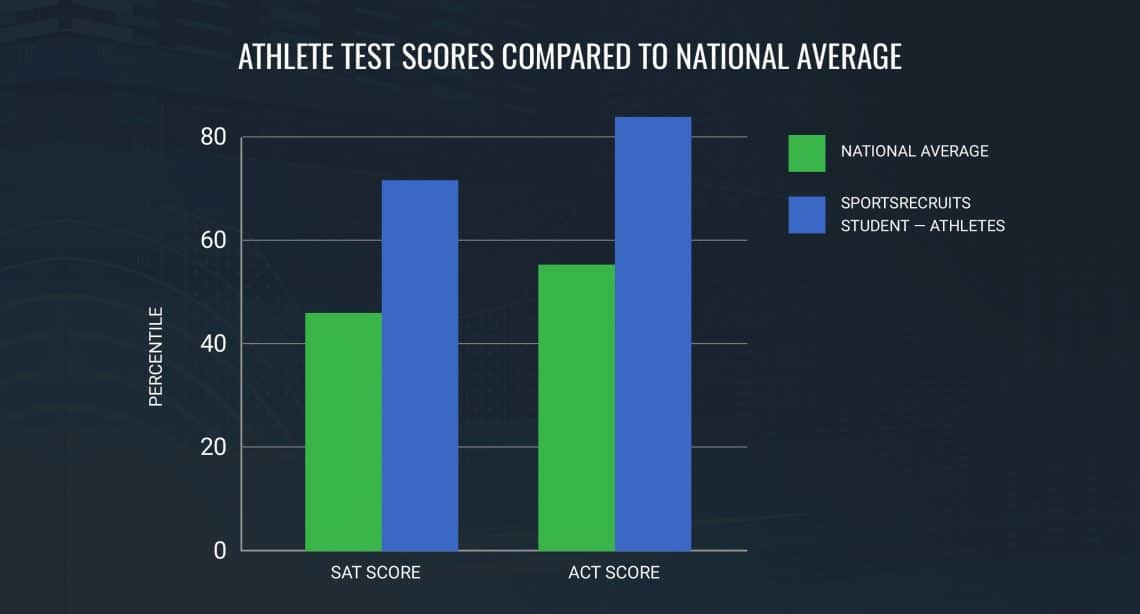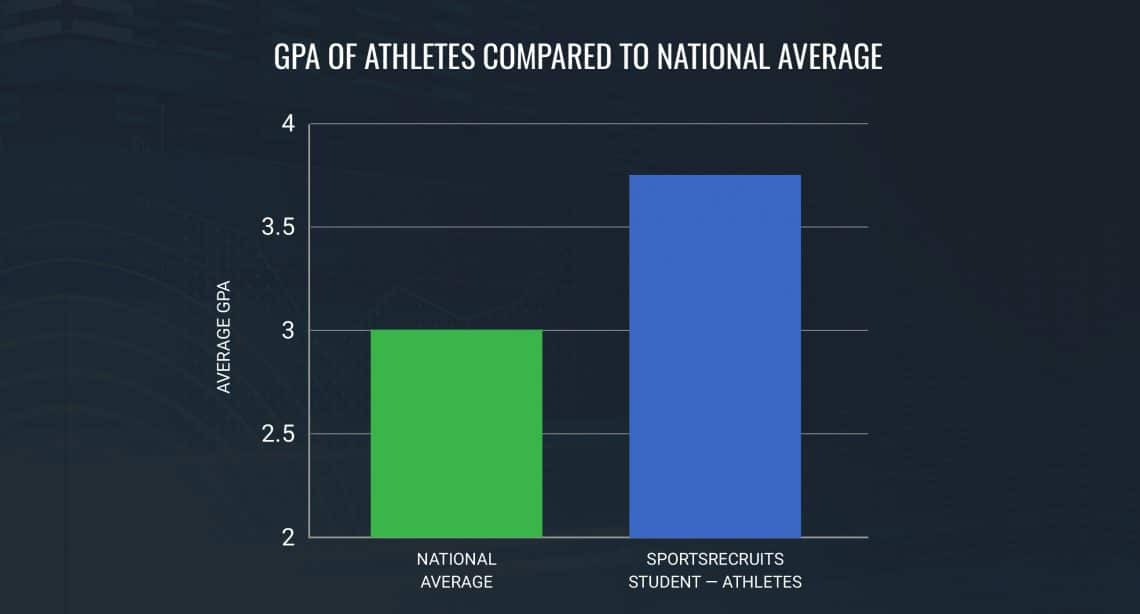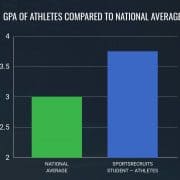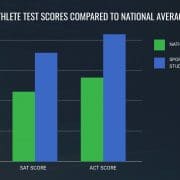The Forty Year Decision
Athletics may be your ticket to college for the next four years, but here’s the catch. After those four years are over, a very small percentage will go on to build a career out of that sport and compete professionally or at the Olympic level.
At SportsRecruits, our goal is to find our student-athletes the perfect fit for the next forty years. Why? Because after your athletic career ends, life goes on! It’s important to choose a school that is a great fit during the four years you’re there, and prepares you well for the lifetime that follows.
Percentage of NCAA Athletes to Go Professional
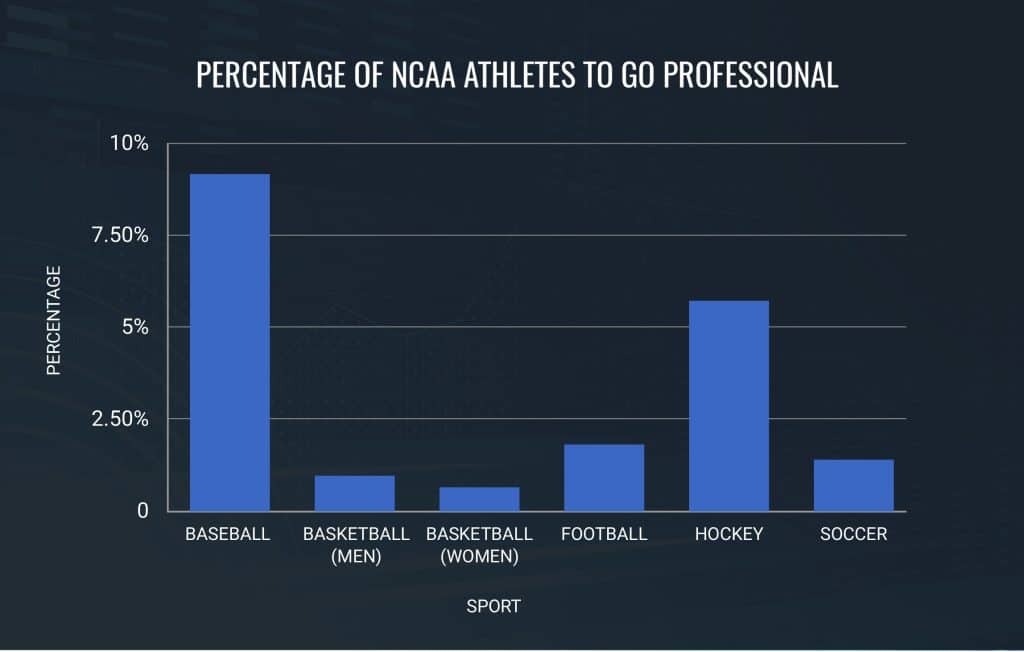
The recruiting process is the pursuit of a dream. Competing at the collegiate level is the goal for many student-athletes — but it shouldn’t be the only one.
As a coach, I came across many athletes who sold themselves short. They were hesitant of challenging themselves in the classroom out of fear that they wouldn’t achieve their academic goals while competing on the field.
Other athletes give up on their athletic career to focus solely on academics.
The biggest mistake you can make as a student-athlete is to believe you have to sacrifice your academic goals for your athletic ones, or vice versa.
The Power of Sports
Sports are powerful because of how far they can take you, literally and figuratively. You can travel the country — even the globe — with teammates, forge lifelong friendships, and network your way to a successful career. The connections and personal skills you develop on the field will open doors.
Even after your athletic career ends, sports continue to impact your life. You can apply everything you learn on the field to life off it. In this way, athletics can be a pathway to myriad opportunities. This is why it’s important to look beyond your athletic career to what you want to achieve after you hang up the cleats.
Many families are blinded with doubt about the recruiting process because their athlete wants to major in engineering or pre-med. They worry that their athlete won’t be able to balance a rigorous course load with the demands of being on a team. To the contrary, college is one of those rare examples of being able to have your cake and eat it, too.
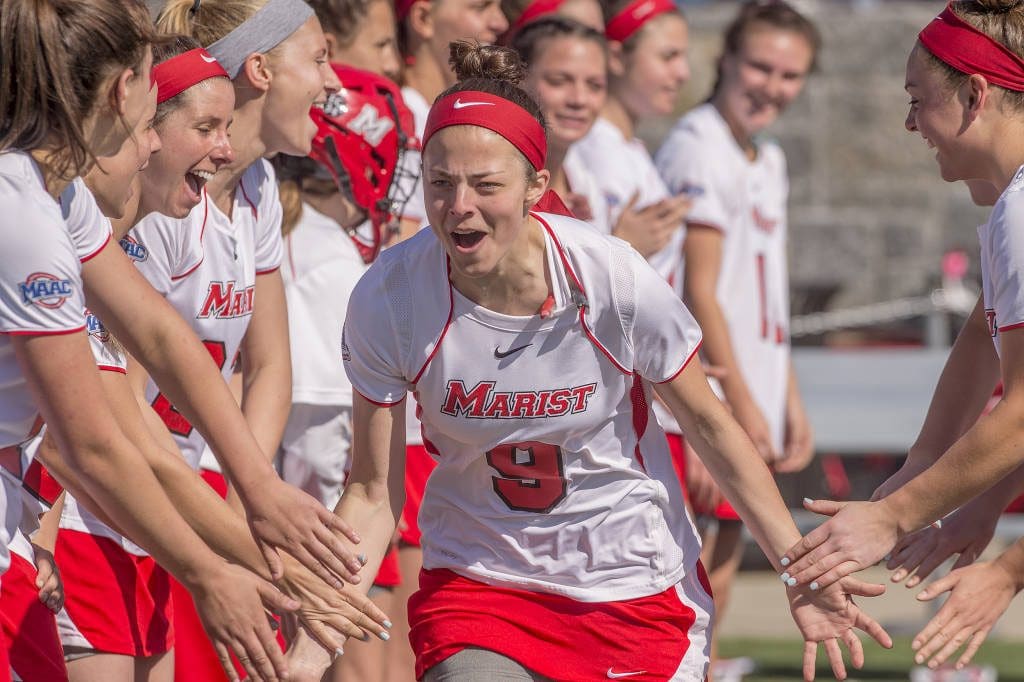
You’re Not Alone
Challenging yourself in the classroom will not limit success in your sport. In fact, it will probably work in your favor. Take it from me, I’ve been there.
I played Division I lacrosse in college. I challenged myself on and off the field, and was able to graduate from the honors college as a 3 year starter on the team. I majored in Biomedical Science with minors in Math and Chemistry. And I was not an anomaly.
Working at SportsRecruits now, I am surrounded by brilliant people who accomplished incredible things as student-athletes in college. I am not telling you this to boast, but to convince you that it is possible for student-athletes to be successful both as students and as athletes.
Play Hard, Work Hard
For most athletes, athletic commitment translates to academic improvement. This may sound counterintuitive. It’s no secret that collegiate sports take time away from your day that could be put towards your studies. But, consider this…
As a freshman, you will have academic advisors, study hall hours, faculty mentors, and countless other resources at your disposal. Most importantly, you will have people to hold you accountable for your academics, which most freshman students do not. This is a very powerful thing.
A study at the University of Michigan shows that athletes earn higher grades, graduate at a higher rate, drop out of school less frequently, and score higher on assessments than do non-athletes. Another study at the University of Connecticut shows that collegiate athletes share a competitive edge which motivates them. Representing something greater than yourself can impact every aspect of your life as a student-athlete.
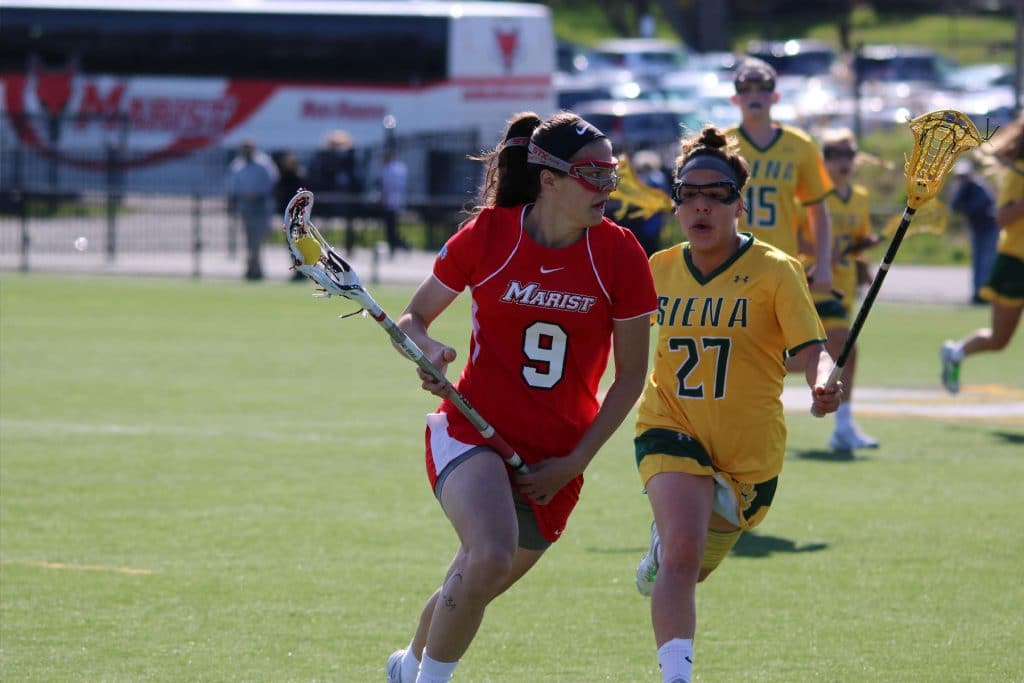
The NCAA has invested a lot of energy and resources towards ensuring that student-athletes are exactly that: students first and athletes second. In past years, Division I athletes have increased the amount of time they dedicate to academics. For in-season athletes, the number jumped from 35.5 hours per week to 38.5 hours per week.
Just let that sink in for a minute.
These individuals are working 40 hour weeks in the classroom, and still make time for practice, workouts, film sessions, meetings, and maybe even some sleep at the end of the day.
And it’s not just collegiate student-athletes that share this success. As a high school student-athlete, you are already accomplishing this balancing act.
Student First, Athlete Second
We leveraged data from the SportsRecruits database and found that our student-athletes outperform high school students across the country. Student-Athletes on the SportsRecruits platform have scored significantly higher than the national average on standardized tests, and also carry higher GPAs than the average high school student.
GPA & Test Scores of Athletes Compared to National Average
This is proof that it’s not just the resources available to collegiate student-athletes that contribute to their success. Throughout their career, student-athletes develop a strong work ethic, drive, leadership skills, and discipline. These traits translate to success on the field, in the classroom, in college, and eventually, in a career.
To ensure you find the best college fit for you, check out the following resource.
5 Tips to Align Your Athletic Goals With Your Academic Ones →


